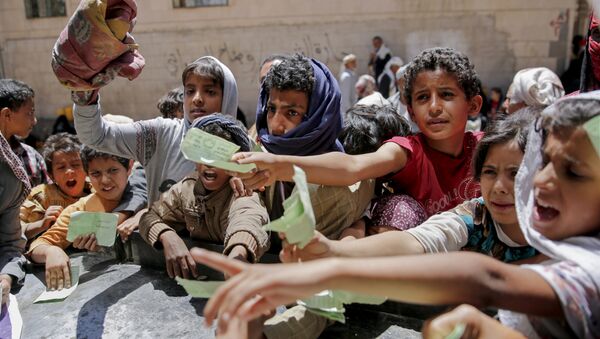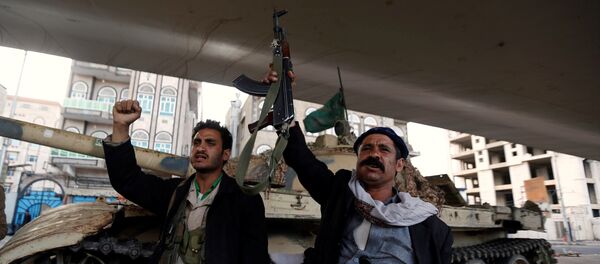"I have directed officials in my administration to call the leadership of the Kingdom of Saudi Arabia to request that they completely allow food, fuel, water and medicine to reach the Yemeni people, who desperately need it," Trump said in a brief statement Wednesday.
"This must be done for humanitarian reasons immediately," he added.
However, facing increasing international pressure as hunger in Yemen grows more widespread, the Saudis did lift the blockade partially, the Hill reports. Saudi Arabia continues to obstruct the transportation of food, fuel and medicine the war-torn country so desperately needs, however.
Yemen faces the worst outbreak of cholera in recent history, with nearly 1 million people contracting the disease, Bloomberg reports. Three million people out of a population of 28 million, are internally displaced, according to UN figures.
United Nations World Food Program head David Beasley said Yemen right now is on the "brink of famine," and UN head of Humanitarian Affairs Mark Lowcock reportedly agrees with him.
"It will not be like the famine that we saw in South Sudan earlier in the year, where tens of thousands of people were affected. It will not be like the famine which cost 250,000 people their lives in Somalia in 2011. It will be the largest famine the world has seen for many decades, with millions of victims," Lowcock said last month, according to the Independent.
Trump's call to end the blockade contrasts his public praise of bin Salman, who has led the Yemeni campaign, for his "efforts to clamp down on terrorism and corruption" in his own country, Bloomberg notes. Bin Salman is behind the anti-corruption sweep that has arrested more than 200 people in Saudi Arabia and exposed corruption to the tune of more than $100 billion. Critics argue that the anti-corruption movement is actually a power grab.
Yemen has been in the grip of a civil war since 2015. The internationally recognized government of President Abd Rabbuh Mansur Hadi, supported by the Saudi-led coalition, is fighting the Houthi movement backed by army units loyal to former President Ali Abdullah Saleh, who was killed in fighting this week.



